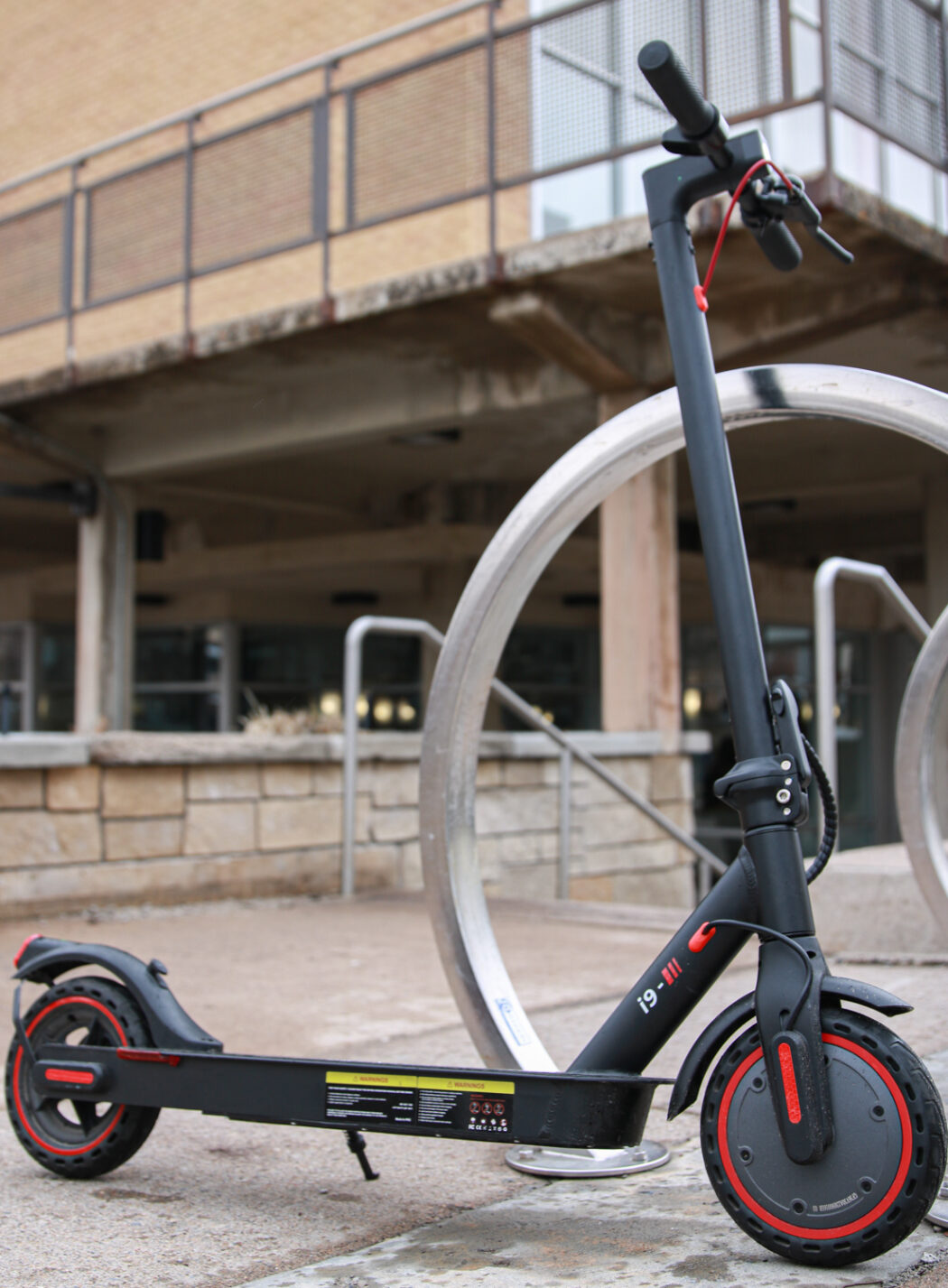USU Fire Department takes action after batteries explode on campus
This past January, instead of its typical snow, the Logan campus saw its second fire-hazardous incident of the school year, both of which have reportedly come from electronic micromobility devices.
Electronic micromobility devices include but are not limited to e-bikes, e-scooters, hoverboards and one-wheels. All of which use lithium-ion batteries to power themselves.
One of these incidents occurred at 3 a.m. in family housing. An e-scooter was at the beginning of starting a fire and went up in smoke. Residents were able to throw the device into the surrounding snow to extinguish it. The other was with an e-skateboard locked in a car.
No one was injured in either of the reported incidents
Utah State University Deputy Fire Marshall, Brandon Stirland believes overcharging the lithium-ion batteries combined with the cold temperatures could be the cause of the two incidents. Considering lots of students use electronic micromobility devices, and the USU campus store also sells them, this poses a huge safety threat on campus.
“There’s no way to put them out. Right once you get these batteries going. They burn hot. You can’t get close to them, “ Stirland said.
Stirland explained it is important for users to make sure their device passes U.S. regulations. This can be shown by a white UL sticker on the device.
“They do all these different tests and studies to make sure it’s going to be safe for the public, and safe to sell. Well, you get companies in China, and overseas that don’t have any regulations. They just manufacture this stuff and send it out and they’re legally allowed to ship to the States. But these countries that are manufacturing the stuff they’re using cheap parts and it’s not set to a standard,” Stirland said.
In response to these incidents, the USU Fire Department, headed by Fire Marshall Steve Bell, is taking action to educate students on how to safely use and take care of their lithium-ion battery-powered devices.
“It’s raised our awareness a little bit more than we’ve had two incidences already. Are we going to see more? Absolutely,” Stirland said. “We’re going to see a whole lot more. We just want to make we sure just want to educate everybody on the precautions you need to take. So that when students leave to go away or go home for Thanksgiving and Christmas, they don’t leave them plugged in.”
Stirland urgeds all students to do their research before purchasing an electronic micromobility device, to avoid any more battery-related incidents.
After hearing about these incidents, the College of Natural Resources Senator Nate Omer, shared his thoughts on how USU should take action.
“I think a big part of how to advocate for safety on campus is by getting people involved and practicing safely,” Omer said. “It’d be awesome to see some events held, getting people on bikes and electric mobility, and then having a workshop on how to take care of them.”
Omer is an electric micromobility user himself while still advocating for the safety of these devices, especially as the technology becomes more widespread.
“If these kinds of technologies are going to be widely used by people there needs to also be a learning curve of how to use them responsibly,” Omer said.

